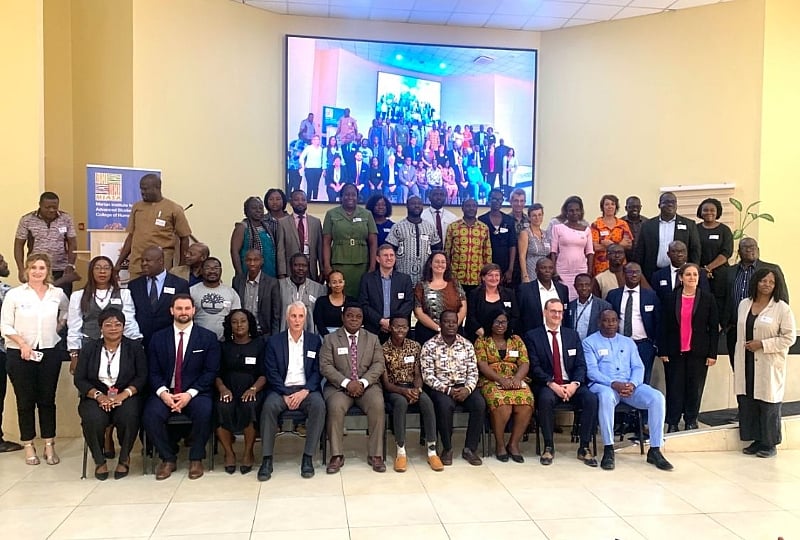The Merian Institute for Advanced Studies in Africa (MIASA) hosted a two-day international conference at the University of Ghana, focusing on the crucial role of cash in African economies, especially during times of crisis. The conference, titled “Cash in crisis in Africa: Navigating financial realities in times of disruption,” brought together experts from Africa and Europe to discuss the complex interplay between cash usage, digital payments, and financial inclusion in the context of political instability, economic shocks, pandemics, and infrastructural challenges. The central message emerging from the conference was a call for balanced financial policies that acknowledge the continued importance of cash while fostering the development of digital payment systems. MIASA emphasized the need to avoid a one-sided transition to digital-only economies, as this could marginalize vulnerable populations who rely heavily on cash for their daily transactions.
The conference’s keynote speaker, Fabio Knümann of the Deutsche Bundesbank, highlighted the enduring relevance of cash for financial inclusion, particularly in African countries where digital infrastructure remains limited. He stressed that cash is not just an alternative but often the foundation of everyday transactions, enabling access to markets, transportation, and essential services. Cash’s reliability, independence from electricity and network connectivity, and immediate usability make it indispensable for millions of people across the continent. This perspective underscored the conference’s core argument against prematurely phasing out cash in favor of digital-only solutions.
Professor Peter Quartey, Director of the Institute of Statistical, Social and Economic Research (ISSER), echoed this sentiment, advocating for policies that offer citizens a choice between cash and digital payments. He emphasized the importance of inclusivity and acknowledged the potential for technology failures, positioning cash as a reliable backup in such scenarios. This emphasis on choice and resilience aligns with the conference’s overall aim of promoting financial stability and accessibility for all segments of the population.
MIASA Director, Professor Grace Diabah, framed the conference as a platform to rethink governance and policy approaches to enhance financial resilience in Africa. She highlighted the alignment of the conference’s theme with MIASA’s mission of promoting sustainable governance through Africa-rooted research and dialogue. The conference served as a vital forum for examining the intricate relationship between central banking policies, informal financial practices, community-level innovations, and cash usage during crises. This multifaceted approach aimed to generate nuanced insights into the complex dynamics shaping financial landscapes across the continent.
The discussions at the conference explored the various ways in which Africans engage with cash during periods of disruption. The research presented by MIASA’s Interdisciplinary Fellow Group (IFG12), composed of researchers from Africa and Europe, shed light on the critical role cash plays in mitigating the impact of political instability, economic shocks, pandemics, and infrastructural breakdowns. The IFG12’s research underscored the importance of understanding the diverse contexts in which cash is used and the specific challenges faced by different communities across Africa.
Supported by the German Federal Ministry of Education and Research and the University of Ghana, the conference provided a valuable opportunity for knowledge exchange and collaborative discussion. The diverse perspectives shared by participants from across Africa and Europe enriched the conversation and contributed to a more comprehensive understanding of the complexities surrounding cash usage and financial inclusion in Africa. The conference’s findings and recommendations are expected to inform future policy decisions and contribute to the development of more inclusive and resilient financial systems across the continent. By fostering dialogue and research on the multifaceted role of cash in African economies, the conference aimed to contribute to a more nuanced and effective approach to financial policymaking. The emphasis on choice, resilience, and inclusivity served as guiding principles for navigating the evolving financial landscape in Africa and ensuring that all citizens have access to secure and reliable financial services.














